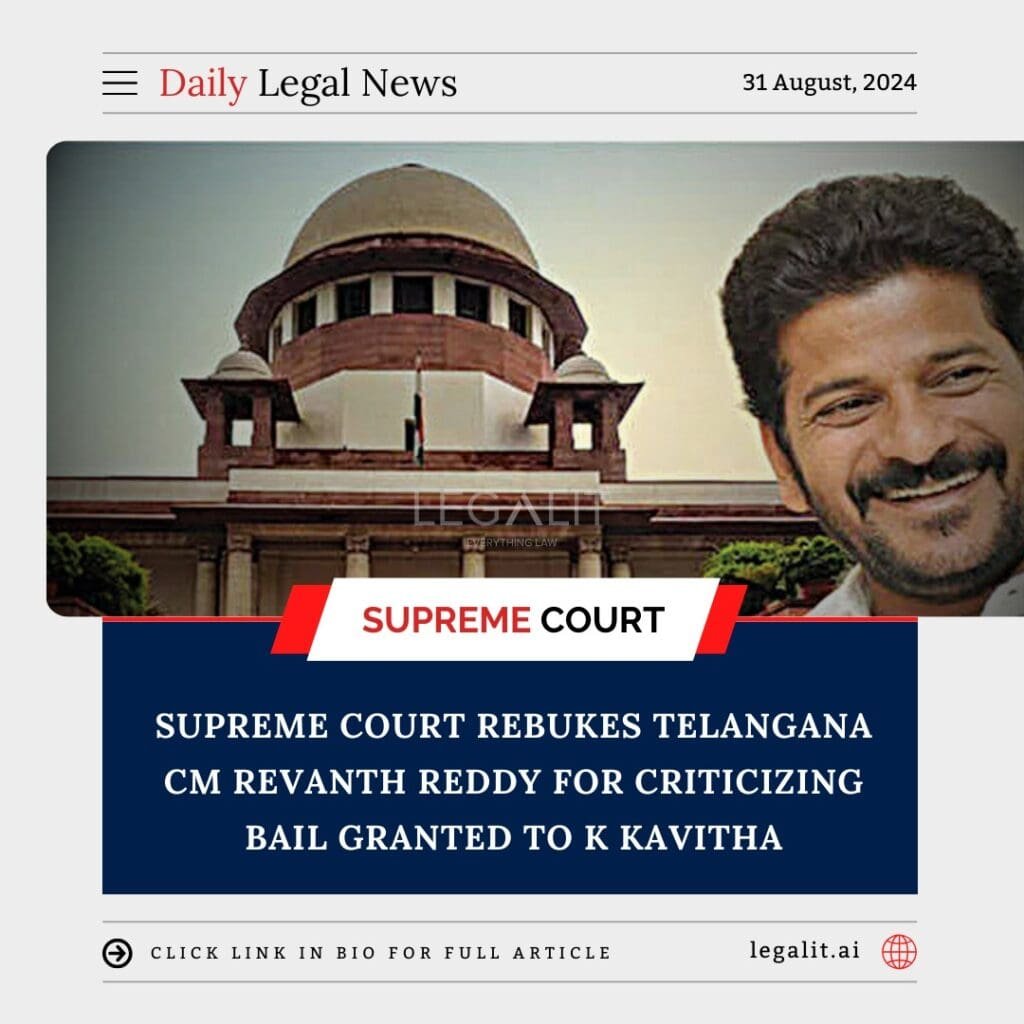
The Supreme Court of India has issued a stern rebuke to Telangana Chief Minister Revanth Reddy over his public criticism of the bail granted to K. Kavitha, the prominent leader and daughter of former Telangana Chief Minister K. Chandrashekar Rao. Reddy’s comments questioning the judiciary’s decision have drawn sharp criticism from the apex court, highlighting the importance of maintaining judicial independence and respect for legal processes.
The controversy erupted when Revanth Reddy, in a series of public statements, expressed his dissatisfaction with the bail order issued by a lower court in favor of K. Kavitha, who had been facing legal scrutiny in connection with a high-profile case. Reddy’s remarks suggested a lack of confidence in the judiciary and raised concerns about the impartiality of the bail decision.
The Supreme Court, addressing the issue, emphasized the need for all public officials and citizens to respect judicial decisions and avoid making public statements that could undermine the authority of the judiciary. The court’s rebuke underscores the principle that judicial decisions should be subject to legal scrutiny through appropriate legal channels rather than through public criticism.
The Chief Justice, while delivering the court’s observations, stressed that questioning or challenging judicial decisions in the public domain can have adverse effects on the rule of law and the independence of the judiciary. The court underscored that the judiciary operates based on established legal principles and procedures, and public figures should refrain from making comments that could be construed as undermining the credibility of the judicial process.
In response to the Supreme Court’s rebuke, Revanth Reddy has faced significant backlash from legal experts, political analysts, and the public, who argue that his comments were inappropriate and disrespectful to the judicial system. Critics have pointed out that while public figures have the right to express their opinions, such opinions should be articulated within the bounds of legal propriety and respect for institutional processes.
The Supreme Court’s intervention serves as a reminder of the critical balance between free speech and the need to uphold the sanctity of judicial decisions. By addressing the issue directly, the court aims to reinforce the importance of adhering to legal norms and ensuring that public discourse does not erode the principles of justice and fairness.
As the situation unfolds, it remains to be seen how this incident will impact the broader discourse on the interaction between politics and the judiciary in India. The Supreme Court’s stance reaffirms its role as the guardian of the Constitution and the rule of law, ensuring that all branches of government and public officials adhere to the principles of legal integrity and respect for judicial authority.